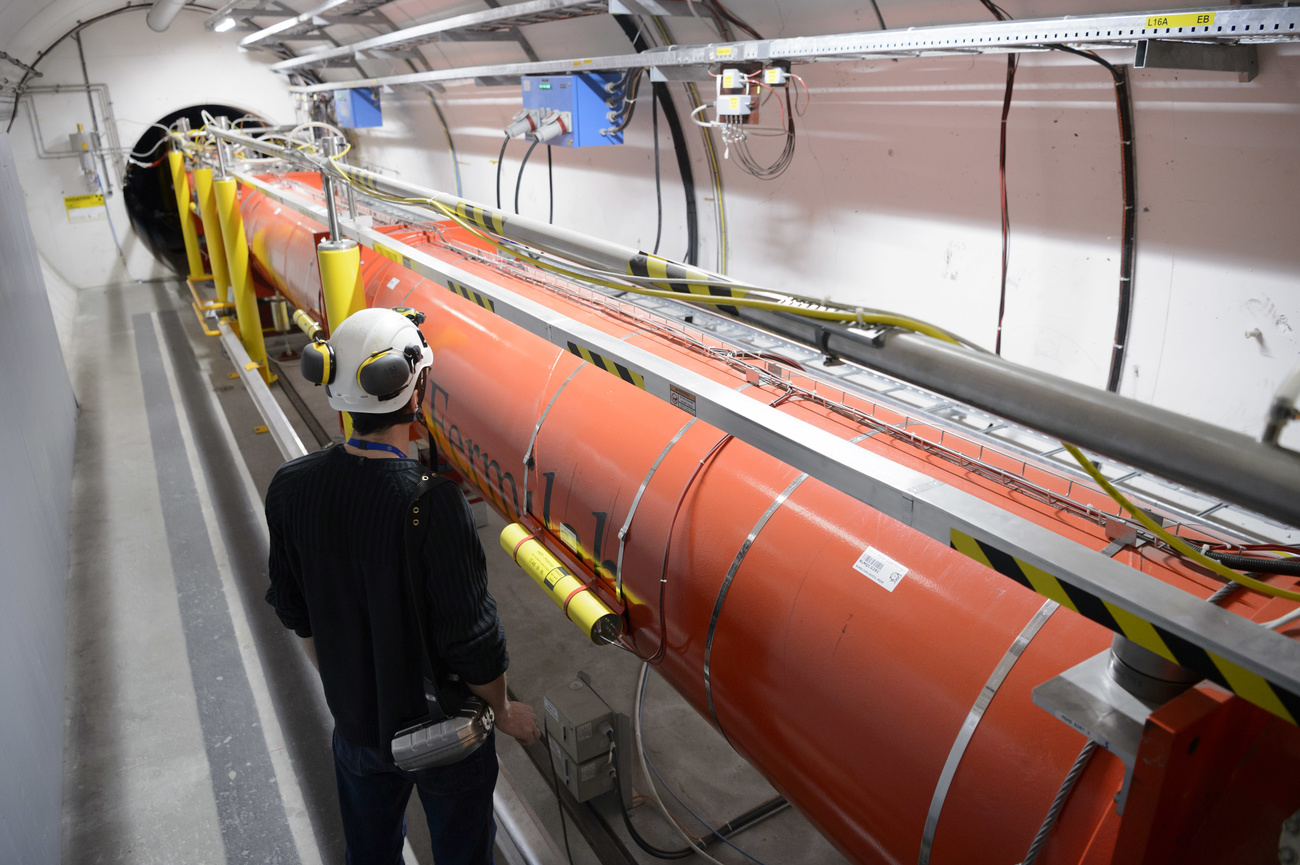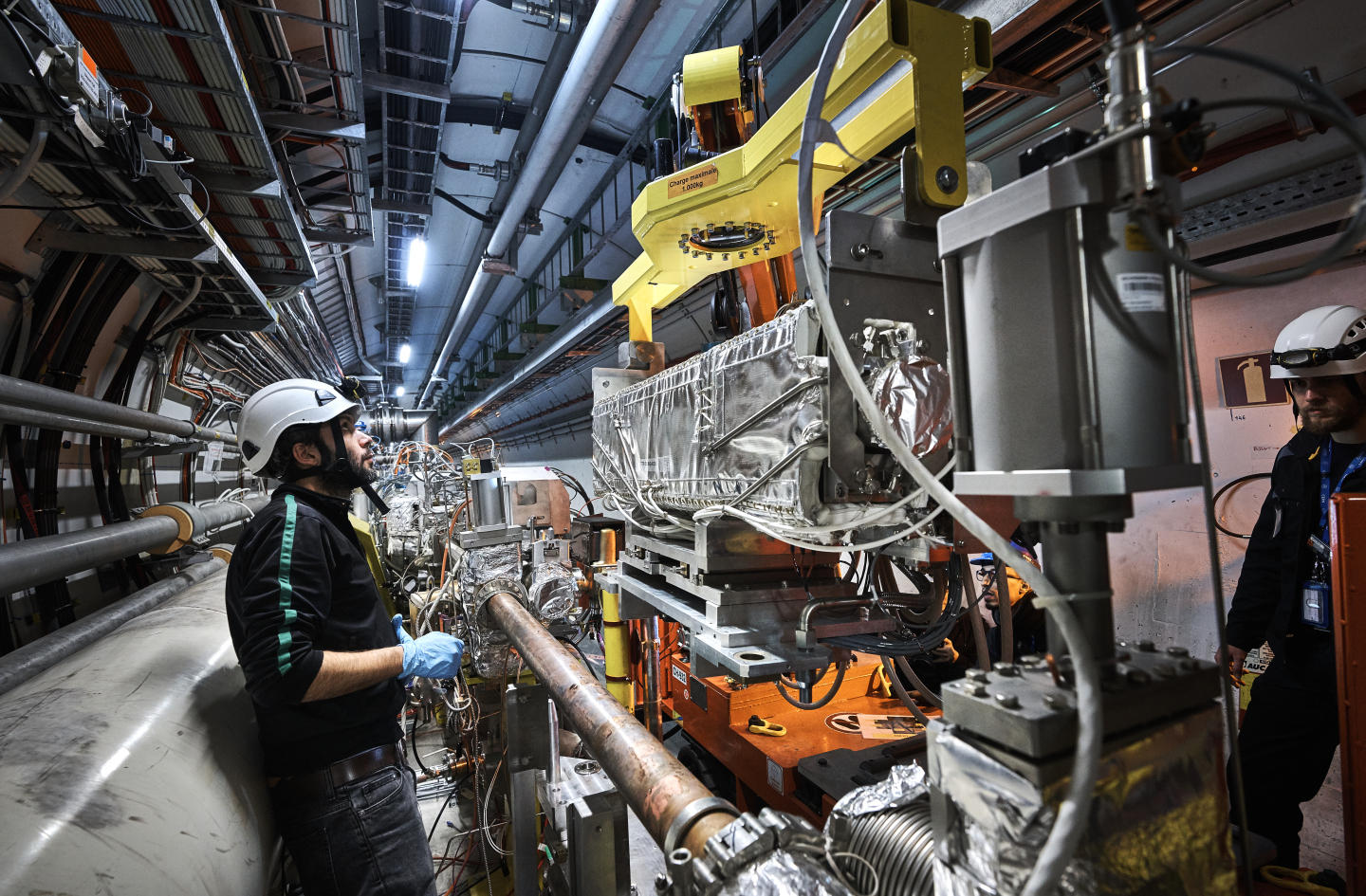
World’s largest particle accelerator restarts

CERN, the European Centre for Nuclear Research on the Swiss-French border, on Friday restarted the world’s largest particle accelerator in a bid to find out more about the origins of the universe.
The 27-kilometre Large Hadron ColliderExternal link has been out of action since the start of 2019 for maintenance and upgrades, which were slowed down by Covid-19. Restarting it is a complex procedure akin to directing “an orchestra”, where “all the right steps have to be taken at the right time”, CERN scientist Rende Steerenberg told Reuters earlier this week.
It will take six to eight weeks for the machine to run at full speed, and only then will proton collisions take place again, which scientists hope will reveal more about the fundamental laws of the universe.
Collisions observed at CERN between 2010 and 2013 brought proof of the existence of the long-sought Higgs Boson particle which, along with its linked energy field, is thought to be vital to the formation of the universe after the Big Bang 13.7 billion years ago. Physicists hope the resumption of collisions will help in their quest for so-called “dark matter” that lies beyond the visible universe.

More
Large Hadron Collider to get bigger and brighter
The LHC is housed in a 27-kilometre tunnel beneath the French-Swiss border near Geneva and is the world’s largest and most complex scientific instrument. It smashes protons at almost the speed of light, recreating conditions a fraction of a second after the Big Bang 13.7 billion years ago.

In compliance with the JTI standards
More: SWI swissinfo.ch certified by the Journalism Trust Initiative

























You can find an overview of ongoing debates with our journalists here . Please join us!
If you want to start a conversation about a topic raised in this article or want to report factual errors, email us at english@swissinfo.ch.